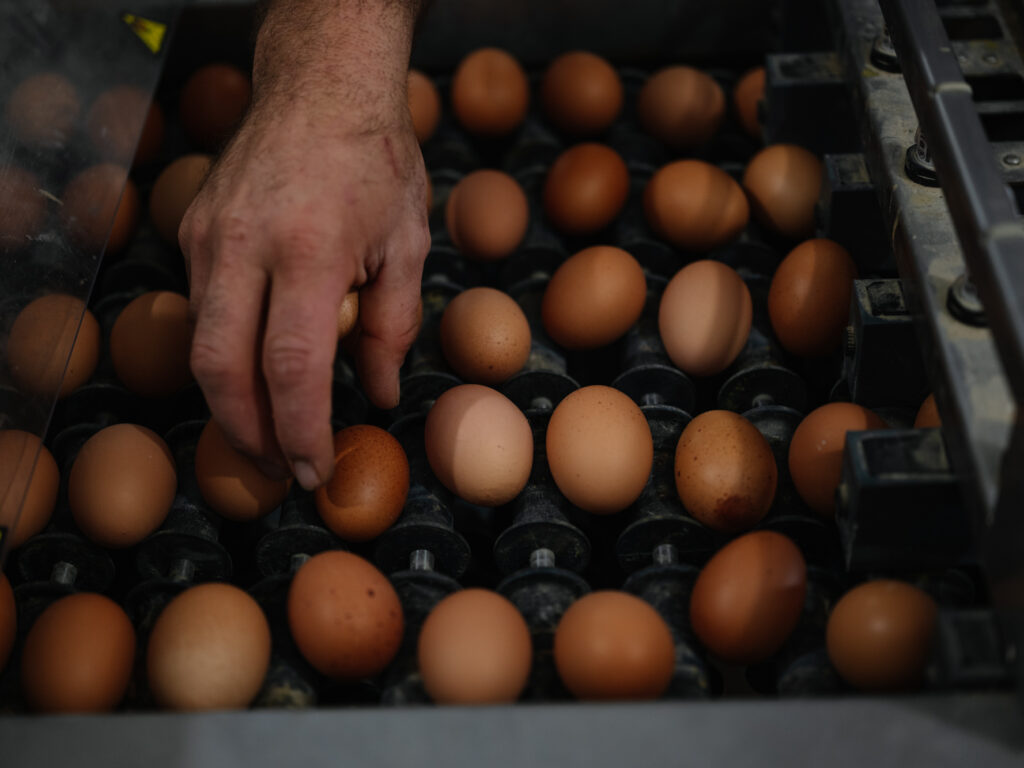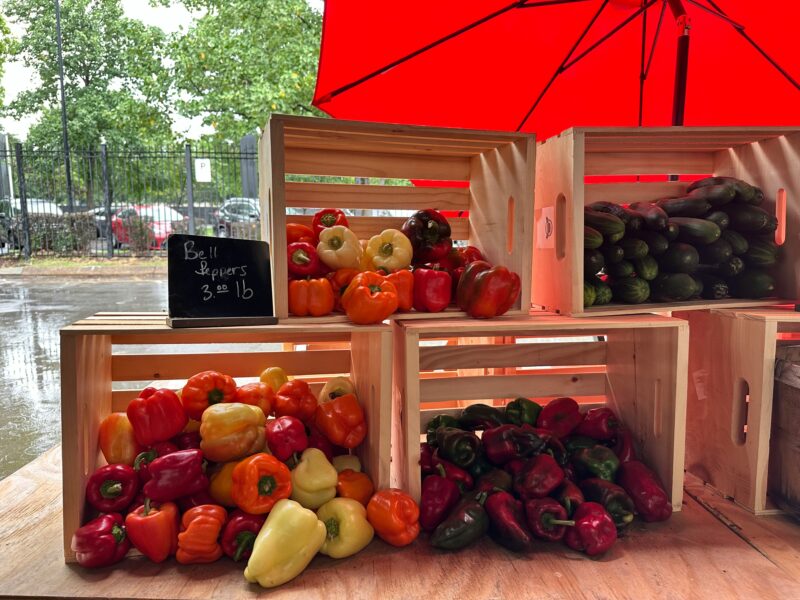
Guest post from Handsome Brook Farms
In an era where the climate crisis threatens food security, agricultural practices play an essential role in shaping a sustainable future. Handsome Brook Farms’ Climate Smart Organic Egg Project signifies a significant stride toward conscientious farming methods. The project, funded through the USDA Partnerships for Climate-Smart Commodities Grant, champions organic egg production while embracing climate-smart techniques. Let’s explore the compelling reasons behind the benefits of organic egg production compared to conventional methods and the crucial role of organic farming in fostering a more climate-resilient future.
Embracing Pasture-Raised and Free-Range Methods:
Within the realm of organic egg production, the distinction between cage-free and pasture-raised/free-range methods is pivotal. Cage-free organic eggs represent a significant improvement over conventionally farmed eggs, offering hens more space to move and engage in natural behaviors. However, the real transformation emerges with pasture-raised and free-range methods. Handsome Brook Farms is dedicated to providing hens with ample space to roam outdoors on organically managed pastures. This approach ensures that the hens have access to natural foraging, sunlight, and a diverse diet, resulting in eggs that are not only organic but also richer in flavor and nutrients, including omega-3 fatty acids and vitamins A, E, and D.
The emphasis on pasture-raised and free-range practices prioritizes the well-being of the hens by allowing them to exhibit their natural behaviors, contributing to healthier and happier birds. This approach not only influences the quality of the eggs but also fosters a more sustainable ecosystem by encouraging biodiversity and healthier soil through the hens’ natural interaction with the land.
Benefits of Organic Farming:
Organic egg production champions animal welfare, environmental sustainability, and human health. In fact, recently passed organic poultry standards incorporate animal welfare as an essential requirement for production because of strong interest from consumers and the organic industry. The cornerstone of organic farming lies in the avoidance of synthetic pesticides, genetically modified organisms (GMOs), and antibiotics.
Handsome Brook Farms adheres to these principles, ensuring their hens roam freely in open spaces, receive organic feed, and are not subjected to hormones or unnecessary antibiotics. Moreover, organic practices foster biodiversity by maintaining natural ecosystems, preserving soil fertility, and reducing pollution. This approach protects water quality, benefits local wildlife, and contributes to the overall health of the environment.
The Climate-Smart Approach:
Organic egg production is inherently climate-smart due to its low carbon footprint and sustainable methods. Conventional egg production often involves intensive industrial processes that contribute significantly to greenhouse gas emissions because of the production and use of synthetic pesticides to manage conventional feed grains. In contrast, Handsome Brook Farms’ organic layer hens receive feed with less energy-intensive inputs, and farmers in the Handsome Brook network incorporate regenerative organic farming practices such as cover cropping and agroforestry, thereby improving soil health and mitigating the impacts of climate change. Implementing innovative approaches that prioritize long-term sustainability, such as planting trees and hedgerows, improving energy efficiency, and reducing waste, organic egg production becomes a crucial player in combating climate change.
Looking Ahead:
The collaboration between Handsome Brook Farms and its partners in the Climate Smart Organic Egg Project, including the support of Organic Voices, not only emphasizes the value of organic egg production but also sheds light on the urgency of adopting climate-smart agricultural techniques. These partnerships signify a proactive step towards a more sustainable future, where the agriculture industry works in harmony with nature, prioritizing the health of the planet and its inhabitants.
Delving deeper into organic and climate-smart egg production, it’s crucial to acknowledge the pivotal role of consumer support. By choosing organic eggs, consumers actively contribute to a more sustainable food system and a healthier planet. Each purchase aligns with a collective effort towards a brighter, more environmentally friendly future.









